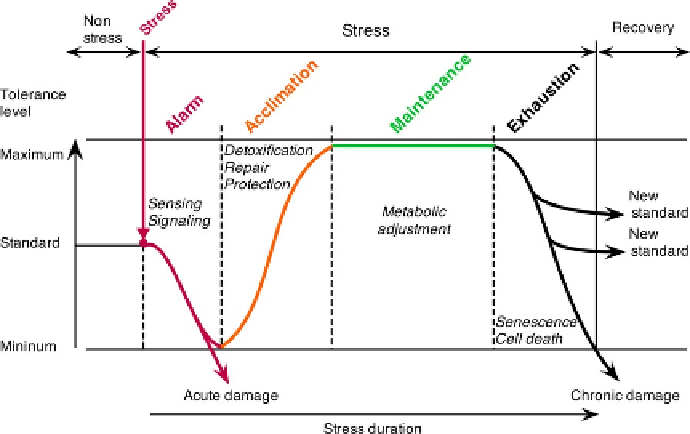Biology Reference
In-Depth Information
Fig. 2. General concept of the different phases occurring during stress response.
Plants are in physiological standard conditions when stress is applied. The early phase
of stress response (alarm phase) is associated with sensing and signalling pathways
followed by an acclimation phase associated with detoxification, repair and protec-
tion activation. This phase can be stabilized (maintenance phase) resulting in pro-
found metabolic readjustments. If the plant is not able to maintain this phase and is
overtaxed by chronic stress, irreversible damages occur (exhaustion). If the stress is
removed before the damages are too high, a recovery phase leads to new physiological
standards.
plant factor levels (transcript, protein, metabolite) according to the phase(s)
involved, that is, signalling, acclimation, adjustment, or exhaustion.
II. RESPONSE TO ABIOTIC STRESSES
A. DROUGHT
Water is a universal requirement for life and is essential for metabolism. The
lack of water resulting from drought stress impacts negatively on plant
growth and productivity. This situation will become worse because of global
climatic change (
IPCC, 2007
), and it is therefore important to improve our
understanding of how plants react to this stress in order to develop efficient
breeding programmes to select tolerant varieties. Several reports have shown
that stress modifies the expression of cell wall-related genes and modifies cell

